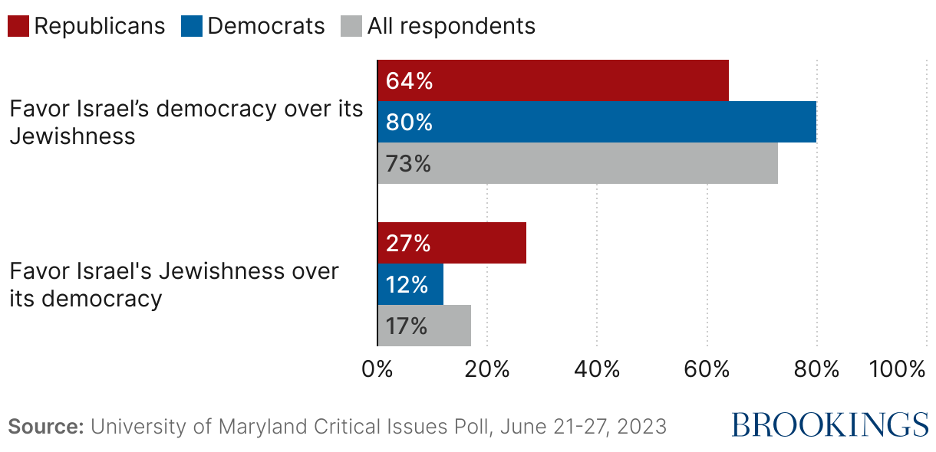IMEU Policy Analysis #11 | Palestinian Statehood Initiatives Lacking Teeth Reinforce Status Quo

Israeli soldiers mobilize at the apartheid wall in the West Bank. Photo credit: Stop the Wall/Flickr, Creative Commons license.
As Israel’s attacks against Palestinians in the Gaza Strip grind on, deepening a humanitarian catastrophe, increasing numbers of Members of Congress are calling for a permanent ceasefire and beginning to think about “day after” scenarios.
Most frequently, these scenarios have envisioned restarting a negotiating process that would lead to Palestinian statehood. Two recent Congressional initiatives have typified this approach. On March 12, Rep. Veronica Escobar, along with 95 original cosponsors, introduced H.Res.1074, supporting a two-state resolution to the Palestine/Israel issue. And, on March 20, Sen. Thomas Carper, along with 18 other Senators, sent a letter to President Biden calling on him “to publicly outline a path for the United States to recognize a nonmilitarized Palestinian state.”
Neither Congressional initiative stipulates any consequences for Israel’s ongoing defiance of this long-standing US policy objective, raising significant concerns about whether they inadvertently reinforce the status quo of Israeli apartheid rule over the Palestinian people and lock the US into outmoded paradigms which will not resolve Palestinian/Israeli issues on the basis of democracy, equality, and justice.
Palestinian Statehood: A Long-Standing US Policy Lacking Substance
Every president since Bill Clinton has nominally supported Palestinian statehood to a greater or lesser degree as the preferred outcome for resolving Palestinian/Israeli issues. However, no president in the past quarter-century has seriously considered, much less imposed, any actual consequences on Israel for defying this US policy objective.
As a result, Israel has consolidated its military occupation of the Palestinian West Bank, including East Jerusalem, and the Gaza Strip, along with its apartheid rule over the Palestinian people, while the US merely paid lip service to the goal of establishing an eventual Palestinian state even as the conditions for it grew ever more unlikely.
It is also important to note that Palestinian “statehood” in the West Bank and the Gaza Strip, as conceptualized both by the US and Israel ever since the Clinton administration, would not have resulted in anything resembling Palestinian sovereignty.
Every US-Israel offer on the table–from President Clinton’s Camp David talks in 2000 to President Trump’s “Peace to Prosperity” plan in 2020–envisioned a Palestinian non-sovereign entity under Israel’s perpetual control. This Palestinian entity would not control its own armed forces, foreign policy, borders, natural resources, airspace, territorial waters, or electromagnetic fields. This is not sovereignty, much less self-determination.
Is Palestinian Statehood a Viable Policy Option Today?
At the onset of the negotiating process that began in 1993 between Israel and the PLO, some analysts believed that a viable and sovereign Palestinian state could be established. At that time, there were 250,000 Israeli settlers living in 140 illegal settlements in the West Bank, including East Jerusalem. However, through Israel’s relentless colonization of Palestinian land in the West Bank, including East Jerusalem, the settler population has nearly tripled over the past 30 years to 700,000 Israeli settlers living in 300 illegal settlements as of 2023.
Due to this vast expansion of existing Israeli settlements and the creation of so many additional ones, most analysts now believe that the potentiality for a contiguous Palestinian state no longer exists. Even Secretary of State John Kerry admitted as much to Congress during the Obama administration. “I believe the window for a two-state solution is shutting," he testified in 2013 before HFAC. "I think we have some period of time – a year to year-and-a-half to two years, or it's over.”
Not only has the expansion of Israel’s settlement enterprise in the West Bank, including East Jerusalem, cast doubts on the possibility of establishing a Palestinian state. Through this process Israel has effectively integrated these settlements into Israel through settler-only bypass roads, effectively annexing them. This same process has also further fragmented Palestinians within the West Bank through the establishment of walls, fences, checkpoints, and other restrictions on their freedom of movement, all of which have greatly atomized Palestinian society and further eroded the possibility of any territorial contiguity for a future state.
No Support for Palestinian Statehood among Israeli Political Parties, Public
Moreover, Members of Congress must confront the reality that no political party in Israel’s governing coalition supports establishing a Palestinian state, and, because of the increasingly rightward drift of the Israeli electorate, it is unlikely that any future governing coalition would either. The current Israeli Prime Minister Benjamin Netanyahu has made this quite clear. He stated that he is “proud that I prevented the establishment of a Palestinian state,” and affirmed that “the state of Israel has to control the entire area from the river to the sea.” In a previous formulation, he called for a Palestinian entity that would be a “state-minus”.
However, Members of Congress should be clear-eyed that this is not simply a problem of Netanyahu driving Israeli policy. His stance is an accurate reflection of the Israeli electorate. Even before October 7, only 35 percent of Israelis supported the establishment of a Palestinian state.
Thinking Beyond the Box of a Two-State Solution
If the majority of Israelis oppose Palestinian statehood even in its non-sovereign or “state-minus” formulations and if Israel has created the conditions under which viable Palestinian statehood is most likely not possible, then Members of Congress should refrain from insisting that a two-state resolution is the “only” or “best” path forward.
Instead, Members of Congress must seriously grapple with the reality that at this juncture the most likely path toward Palestinian freedom, justice, and self-determination may involve transforming the one-state apartheid reality of Israel’s rule into a one-state reality based on democracy and equality between Palestinians and Israelis. Indeed, vast majorities of all Americans support this policy option if two states are not feasible. For example, a 2023 Brookings/University of Maryland poll found that by a 73-17 margin all respondents favored Israel being a democracy for all if two states were not possible.

Was the Two-State Framework Ever Just?
The international community has supported a two-state framework for more than 75 years. In 1947, the UN General Assembly recommended partitioning Palestine into two states. However, this recommendation was taken against the explicit wishes of the indigenous Palestinian majority, which constituted a violation of Palestinian self-determination. At the time, the Zionist movement owned only 7 percent of the land of Palestine and indigenous Palestinians were two-thirds of the population.
The Arab Higher Committee, which was the officially recognized representative body of the Palestinian people in the UN at the time, argued persuasively that Palestinian self-determination could only be fulfilled through a unitary state premised on democracy and equality with minority rights guarantees and cultural and religious autonomy for its Jewish population.
Israel’s violent campaign to establish its rule over 78 percent of Palestine in 1948–during which it committed widespread acts of ethnic cleansing, destroyed hundreds of Palestinian towns and villages, and made nearly the entire Palestinian people into refugees who were not allowed to return home–was a further violation of Palestinian self-determination. Palestinians refer to this dispossession as the Nakba, or “catastrophe” in English.
Initiatives that seek to restrict Palestinian self-determination to the remaining 22 percent of Palestine merely reinforce the injustices of the Nakba rather than rectify them.
